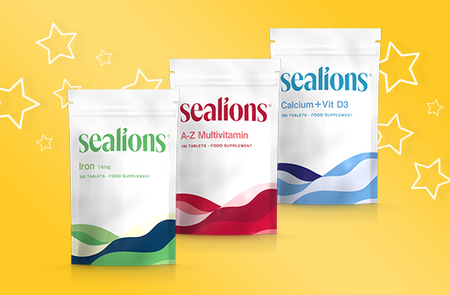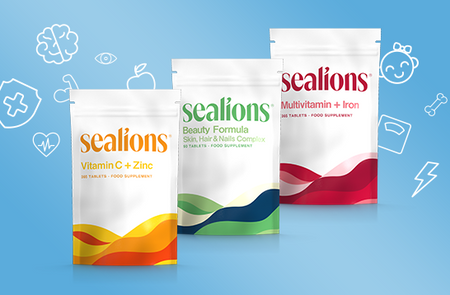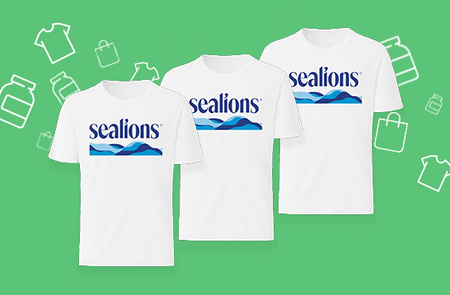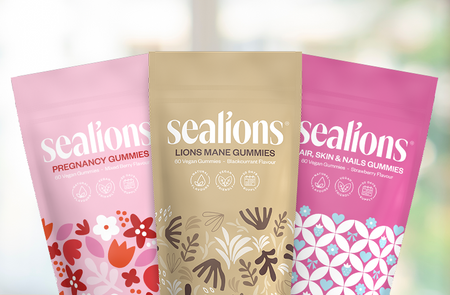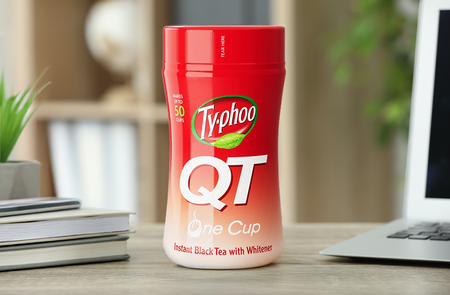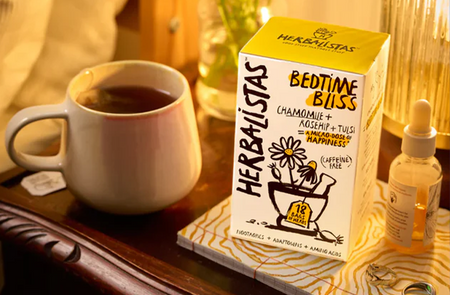
Wait… Creatine Can Help With Menopause?
When we think of menopause, we often picture the common symptoms such as hot flushes, sleepless nights, and brain fog. But we rarely stop to consider how supplements typically associated with the gym could actually support women through this natural stage of life.
Creatine Monohydrate might just be one of the most underrated supplements for women during (peri)menopause.
What Is Menopause?
Menopause is a gradual transition made up of three stages: perimenopause, menopause, and postmenopause. It all starts with perimenopause, when hormone levels begin to fluctuate and periods may become irregular. As the transition progresses, your metabolism, hormones, and even how your body stores fat begin to change. It’s a natural shift in your body’s balance that affects far more than just your mood or periods.
The most common symptoms that women experience are:
- Hot flashes
- Night sweats
- Changes in muscle and/or bone health
- Mood changes
- Brain fog
- Increased fatigue
🌷Did you know? Women can lose up to 20–30% of their bone density in the first 5–7 years after menopause due to declining estrogen levels, increasing the risk of osteoporosis.[1]
So.. How Can Creatine Help?
Creatine is a natural compound produced and stored in small amounts in our muscles and brain. Its main function is to help cells generate energy quickly, giving you fuel for movement, mental focus, and daily energy. While it’s often associated with males, athletes or strength training, creatine has much broader benefits… Especially for women.
Research shows that creatine can support with:
- Muscle strength
- Bone health
- Cognitive function
- Cellular energy
Interestingly, women naturally tend to have slightly lower creatine stores than men, which means supplementation can be particularly beneficial. [2]
How It Can Help With Hormonal Shifts
Hormones, especially estrogen, influence the natural creatine levels in the body. Throughout life, fluctuations in estrogen can affect how much creatine the body produces. You might notice this as a sluggish workout before your period cycle, postpartum fatigue, or perimenopausal brain fog. These are exactly the times when creatine can be most helpful.
Creatine can even play a role during pregnancy, when the body’s energy demands increase to support the placenta and developing fetus. Poor creatine metabolism may affect fertility and pregnancy outcomes, whereas supplementation can support reproductive health.
For The Body
Creatine isn’t just for people who go to the gym, it plays a role in your body’s cellular energy, which becomes especially important during menopause.
As hormone levels shift, women often experience a natural decline in muscle mass and bone density, along with increased fatigue. Supplementing with creatine can help preserve lean tissue mass and build muscle[3] as well as strengthening joints - protecting your overall bone health.[4]
On top of those benefits, creatine may help reduce inflammation[5] and oxidative stress, supporting overall wellbeing and giving your cells an extra energy boost.
For The Mind
Cellular energy isn’t just important for your muscles, it’s essential for your brain too. Research shows that creatine supplementation can help support cognitive energy metabolism, giving your mind the fuel it needs to stay sharp and focused. [6]
Creatine has also been shown to support healthy serotonin signalling[7], which can help regulate mood and overall wellbeing. For women navigating menopause, these benefits mean creatine can play a part in keeping both the body and mind strong and resilient.
How Much Creatine Is Recommended
For women, a daily intake of at least 3 grams of creatine is recommended. To use, simply mix one scoop of Sealions Creatine Monohydrate (according to the instructions on the pouch) with 200–250ml of water or your favourite beverage.
[1]Source: https://www.niams.nih.gov/health-topics/osteoporosis
[2]Smith-Ryan AE, Cabre HE, Eckerson JM, Candow DG. Creatine Supplementation in Women's Health: A Lifespan Perspective. Nutrients. 2021 Mar 8;13(3):877. doi: 10.3390/nu13030877. PMID: 33800439; PMCID: PMC7998865.
[3]Chilibeck PD, Kaviani M, Candow DG, Zello GA. Effect of creatine supplementation during resistance training on lean tissue mass and muscular strength in older adults: a meta-analysis. Open Access J Sports Med. 2017 Nov 2;8:213-226. doi: 10.2147/OAJSM.S123529. PMID: 29138605; PMCID: PMC5679696.
[4]Neves M Jr, Gualano B, Roschel H, Fuller R, Benatti FB, Pinto AL, Lima FR, Pereira RM, Lancha AH Jr, Bonfá E. Beneficial effect of creatine supplementation in knee osteoarthritis. Med Sci Sports Exerc. 2011 Aug;43(8):1538-43. doi: 10.1249/MSS.0b013e3182118592. PMID: 21311365.
[5]Cordingley DM, Cornish SM, Candow DG. Anti-Inflammatory and Anti-Catabolic Effects of Creatine Supplementation: A Brief Review. Nutrients. 2022 Jan 27;14(3):544. doi: 10.3390/nu14030544. PMID: 35276903; PMCID: PMC8839648.
[6]Avgerinos KI, Spyrou N, Bougioukas KI, Kapogiannis D. Effects of creatine supplementation on cognitive function of healthy individuals: A systematic review of randomized controlled trials. Exp Gerontol. 2018 Jul 15;108:166-173. doi: 10.1016/j.exger.2018.04.013. Epub 2018 Apr 25. PMID: 29704637; PMCID: PMC6093191.
[7]Meftahi GH, Hatef B, Pirzad Jahromi G. Creatine Activity as a Neuromodulator in the Central Nervous System. Arch Razi Inst. 2023 Aug 31;78(4):1169-1175. doi: 10.32592/ARI.2023.78.4.1169. PMID: 38226371; PMCID: PMC10787915.
Tagged:

